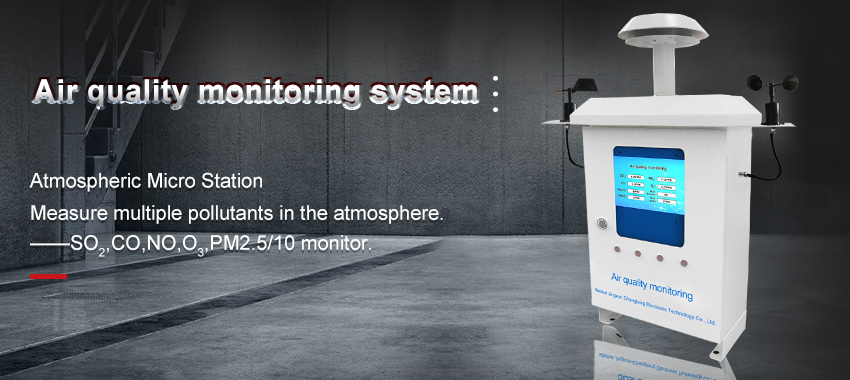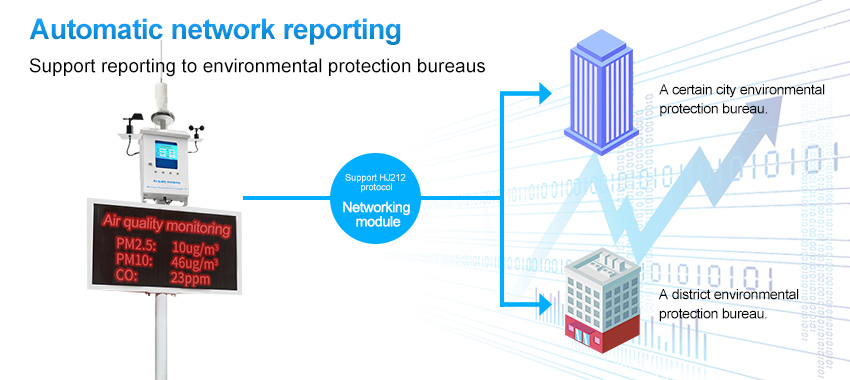Introduction
Gas detectors are essential devices that play a crucial role in ensuring the safety of your home and family. They are designed to detect the presence of harmful gases such as carbon monoxide, natural gas, propane, and others. These gases can be invisible and odorless, making them difficult to detect without the help of specialized equipment. In this article, we will explore the importance of gas detectors, how they work, the different types available, and why you should install them in your home.

Understanding the Dangers of Harmful Gases
Before we dive into the importance of gas detectors, it's essential to understand the dangers associated with harmful gases. These gases can pose significant health risks, leading to severe injuries or even death if not detected and addressed promptly.
Carbon Monoxide (CO)
Carbon monoxide is a colorless, odorless, and poisonous gas that can be produced by incomplete burning of fuels such as natural gas, oil, coal, or wood. Exposure to carbon monoxide can cause a range of symptoms, including headaches, dizziness, chest pain, shortness of breath, confusion, and loss of consciousness. In severe cases, carbon monoxide poisoning can lead to brain damage, heart problems, and even death.
Carbon monoxide is particularly dangerous because it can build up in enclosed spaces, such as homes, without any warning. Common sources of carbon monoxide in the home include furnaces, water heaters, stoves, fireplaces, and generators.

Natural Gas and Propane
Natural gas and propane are commonly used as fuel sources for heating, cooking, and other household appliances. While these gases are generally safe when used properly, leaks can occur, leading to potentially hazardous situations.
Natural gas and propane are both flammable and can ignite if they reach a certain concentration in the air. Leaks can also cause asphyxiation if the oxygen levels in the air are reduced. Symptoms of natural gas or propane exposure include dizziness, headaches, confusion, and loss of consciousness. In extreme cases, leaks can lead to explosions and fires, causing severe property damage and injuries.
Radon
Radon is a naturally occurring radioactive gas that can enter homes through cracks in the foundation, walls, or floors. Long-term exposure to high levels of radon can increase the risk of developing lung cancer. Radon is the second leading cause of lung cancer in the United States, with an estimated 21,000 lung cancer deaths attributed to radon exposure each year.
How Gas Detectors Work
Gas detectors are designed to detect the presence of harmful gases in the air and alert you to potential dangers. There are several different types of gas detectors available, each with its own detection mechanism and operating principles.
Combustion-Based Detectors
Combustion-based detectors, such as ionization detectors, work by burning a small sample of air and measuring the electrical conductivity of the combustion products. If harmful gases are present in the air, they will alter the conductivity of the combustion products, triggering the alarm.
Chemical Sensors
Chemical sensors, such as metal oxide semiconductor (MOS) sensors or catalytic bead sensors, work by reacting with the target gas to produce a measurable change in electrical properties. These sensors are highly sensitive and can detect low concentrations of harmful gases.
Infrared Sensors
Infrared sensors detect gases by measuring the absorption of infrared radiation at specific wavelengths. Different gases absorb infrared radiation at different wavelengths, allowing the sensor to identify and quantify the presence of specific gases.
Optical Sensors
Optical sensors use light-emitting diodes (LEDs) and photodiodes to detect the presence of gases. These sensors work by emitting a beam of light and measuring the absorption or scattering of the light by the target gas.
Types of Gas Detectors
There are several different types of gas detectors available, each designed to detect specific types of gases. Understanding the different types of detectors can help you choose the right one for your needs.
Carbon Monoxide Detectors
Carbon monoxide detectors are specifically designed to detect the presence of carbon monoxide in the air. These detectors are essential for protecting your family from the dangers of carbon monoxide poisoning. Carbon monoxide detectors can be standalone units or combined with smoke detectors to provide comprehensive home protection.
Natural Gas and Propane Detectors
Natural gas and propane detectors are designed to detect leaks of these flammable gases. These detectors can be either hardwired into your home's electrical system or battery-operated. They are commonly installed near appliances that use natural gas or propane, such as furnaces, water heaters, and stoves.
Radon Detectors
Radon detectors are designed to detect the presence of radon gas in the air. These detectors can be either continuous or short-term monitoring devices. Continuous monitors provide real-time data on radon levels and can alert you to potential hazards. Short-term monitors are typically used for testing radon levels over a period of a few days to a few months and can provide a snapshot of radon levels in your home.
Multi-Gas Detectors
Multi-gas detectors are designed to detect multiple types of gases simultaneously. These detectors are often used in industrial or commercial settings where multiple hazards may be present. However, they can also be useful in residential settings for comprehensive home protection.
Benefits of Installing Gas Detectors
Installing gas detectors in your home can provide several benefits, including early detection of harmful gases, peace of mind, and potential cost savings.
Early Detection of Harmful Gases
The primary benefit of installing gas detectors is early detection of harmful gases. By detecting gases before they reach dangerous levels, gas detectors can provide you with the time needed to take action and protect your family. This can include ventilating the area, shutting off fuel sources, or evacuating the home.
Peace of Mind
Installing gas detectors can also provide peace of mind, knowing that your family is protected from the dangers of harmful gases. This can be particularly important for families with young children, older adults, or pets who may be more vulnerable to the effects of harmful gases.
Potential Cost Savings
Installing gas detectors can also help you save money in the long run. By detecting leaks early, you can prevent costly repairs and replacements of damaged appliances and fixtures. Additionally, avoiding potential health problems related to harmful gas exposure can save you money on medical bills and lost wages.
Choosing the Right Gas Detector
Choosing the right gas detector for your home can depend on several factors, including the types of gases you want to detect, the size of your home, and your budget. Here are some tips to help you choose the right gas detector:
- Identify the gases you want to detect: Determine which gases pose the greatest risk to your home and family. This may depend on the types of appliances you have, the fuel sources you use, and the geographic location of your home.
- Consider the size of your home: Larger homes may require multiple gas detectors to ensure comprehensive coverage. Consider installing detectors in each bedroom, the kitchen, and other areas where harmful gases may be present.
- Choose a reliable brand: Look for gas detectors from reputable brands with a good track record of safety and performance. Read reviews and consult with professionals to find the best options for your needs.
- Consider additional features: Some gas detectors come with additional features, such as digital displays, remote monitoring capabilities, and integration with home security systems. Consider these features to determine which options are most important to you.
- Set a budget: Determine how much you are willing to spend on gas detectors and choose options that fit within your budget. Remember that the cost of gas detectors can be offset by the potential savings in repair and medical costs.
Installing and Maintaining Gas Detectors
Installing and maintaining gas detectors is essential for ensuring their effectiveness and reliability. Here are some tips for installing and maintaining gas detectors:
- Follow the manufacturer's instructions: Carefully read and follow the manufacturer's instructions for installing and maintaining your gas detectors. This will help ensure that they are installed correctly and function as intended.
- Test the detectors regularly: Regularly test your gas detectors to ensure that they are working properly. This can typically be done by pressing a test button on the detector.
- Replace batteries as needed: Battery-operated gas detectors require regular battery replacements to ensure that they continue to function. Check the batteries at least once a year and replace them as needed.
- Keep detectors clean: Keep your gas detectors clean and free of dust and debris. This can help ensure that they function properly and remain accurate.
- Consider professional installation: If you are unsure how to install your gas detectors or if you have any concerns about their effectiveness, consider consulting with a professional. They can help ensure that your detectors are installed correctly and provide guidance on maintenance and testing.
Conclusion
Gas detectors are essential devices that play a crucial role in ensuring the safety of your home and family. By detecting harmful gases early, they can provide you with the time needed to take action and protect your loved ones from potential dangers. Understanding the dangers of harmful gases, how gas detectors work, and the different types available can help you choose the right detectors for your needs. Installing and maintaining gas detectors is essential for ensuring their effectiveness and reliability, and can provide peace of mind and potential cost savings.
By taking the steps to protect your home and family with gas detectors, you can help ensure that your loved ones remain safe and healthy. Remember that the cost of gas detectors is a small price to pay for












